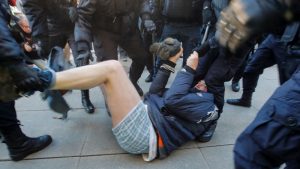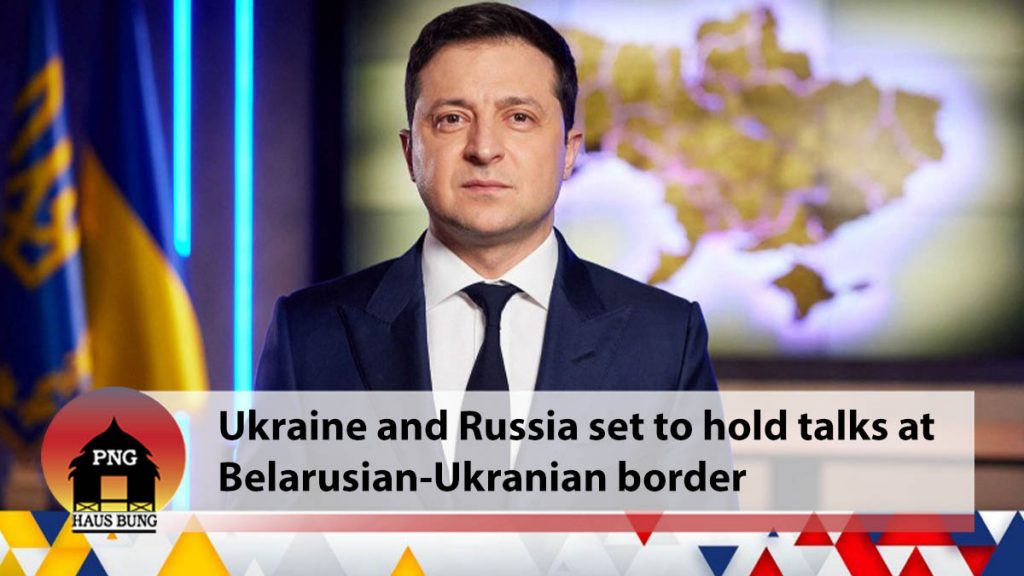A statement on the Telegram messaging app said the two sides would meet at an unspecified location on the Belarusian border and did not give a precise time for the meeting.
President Volodymyr Zelenskyy said he needed to use every opportunity to secure peace.
“I do not really believe in the outcome of this meeting, but let them try so that later not a single citizen of Ukraine has any doubt that I, as President, tried to stop the war, when there was even a small, but still a chance.”
The announcement came hours after Russia confirmed its delegation had flown to Belarus to await talks.
Ukrainian officials initially rejected the move, saying any talks should take place elsewhere than Belarus, where Russia has placed a large contingent of troops.
Putin’s nuclear threat
President Vladimir Putin has ordered Russian nuclear forces put on high alert in response to what he called “aggressive statements” by leading NATO powers.
Speaking at a meeting with his top officials, Mr Putin directed the Russian defence minister and the chief of the military’s General Staff to put the nuclear deterrent forces in a “special regime of combat duty”.
“Western countries aren’t only taking unfriendly actions against our country in the economic sphere,” he said in televised comments.
“But top officials from leading NATO members made aggressive statements regarding our country.”
The US ambassador to the United Nations responded to the comments from Moscow.
“President Putin is continuing to escalate this war in a manner that is totally unacceptable,” ambassador Linda Thomas-Greenfield said.
“And we have to continue to condemn his actions in the most strong, strongest possible way.”
She added that it “remains to be seen” if Russia is acting in good faith regarding the talks.
Anti-war protests continue across Russia
From Moscow to Siberia, Russian anti-war activists have taken to the streets again to protest against the invasion, despite the arrests of hundreds of protesters each day.

Demonstrators have been holding marches in city centres, chanting “No to war!”.
Protests against the invasion started on Thursday in Russia and have continued daily ever since, even as police have moved swiftly to crack down on the rallies and detain protesters.
The protests on Sunday appeared smaller than the ones on Thursday, the first day of Russia’s attack in Ukraine, when thousands of people rallied in Moscow and St Petersburg, but their true scale was hard to assess.
In St Petersburg, where dozens gathered in the city centre, police in full riot gear were seen grabbing one protester after another and dragging some into police vans, even though the demonstration was peaceful and no violent incidents have occurred.
According to the OVD-Info rights group that tracks political arrests, by Sunday afternoon, police had detained at least 356 Russians in 32 cities over anti-war demonstrations that day.
SOURCE: SKY NEWS

